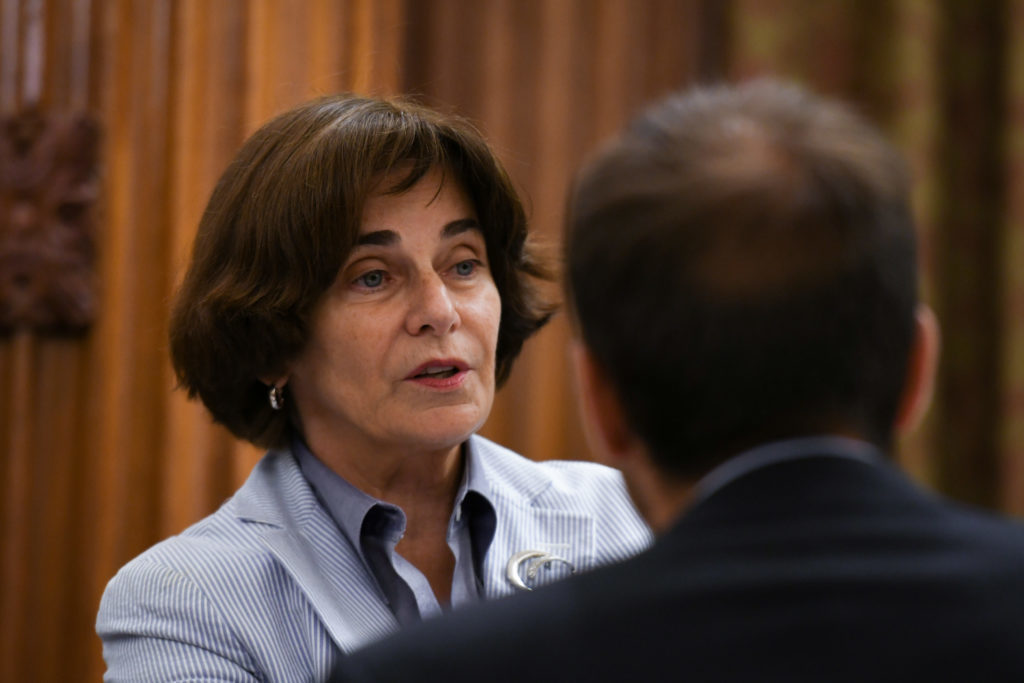A bill proposed to the D.C. Council last week could establish an agency in the District that would provide state-sponsored student loans to D.C. college students.
Councilmembers introduced the Student Loan Authority Establishment Act Oct. 16 to provide and refinance undergraduate, graduate and parent loans through tax-exempt bonds, according to the legislation. Council personnel said the legislation would offer interest rates “significantly lower” than federal and private lender rates.
Councilmember Elissa Silverman said the bill would help D.C. residents cover their living expenses in a major city by reducing the proportion of their income that is spent toward repaying loans from their college years.
“District students and residents should be able to afford to stay in our city,” Silverman said in an email. “This bill relieves some of the burdens of student loans – making it easier for residents to pursue higher education, raise families in D.C. and save for major investments without being financially crushed by debt.”
Americans collectively owe more than $1.5 trillion in student debt, according to the Federal Reserve Bank of St. Louis. The average D.C. college graduate left school last year with more than $30,000 of debt, while GW graduates averaged about $33,300 in loans last year, according to the Institute for College Access and Success.
Ashley Fox, the communications director for Silverman, said the bill would offer rates that are “significantly lower” than federal loans, which require a fixed additional interest rate above the cost to the government.
“The result would be that current students will graduate with manageable debt that increases their chances of financial stability,” Fox said. “It would also mean that residents currently struggling to survive in the District can ease some of that burden.”
The bill was modeled after similar measures enacted in 15 other states, like Texas and Alaska, which have issued student loans for decades, Fox said.
All loans disbursed through the program could be paid off with an income-based repayment system, post-graduation deferred payment or public service forgiveness – where student loans are forgiven after the borrower has worked as a public servant or for a nonprofit for a certain amount of time, according to the legislation.
“This bill isn’t a change to an existing federal or private aid option,” Fox said. “It’s a separate option for District residents and students altogether. If the individual already had loans from a different source, they might consider refinancing under this new program.”
The Council’s Education and Finance and Revenue committees are currently evaluating the bill, according to D.C. Council records. The timeline for the legislation is not definite, but the Council is optimistic that the bill will be passed and funded by the “next Council period,” Fox said.
Councilmember Mary Cheh said that unless immediate steps are taken to help students facing “gargantuan” loan debt, students will be forced to deal with thousands of dollars of debt well into middle age.
“This is not the way to launch young people into their careers or help them reach their goals, and I support this effort to establish a new local finance authority to provide new student loans and refinance existing ones,” she said in a statement.
Student loans experts said students should verify the different conditions they sign on to that accompany new state loan offers.
Jeremy Wine – a supervisor of student loan counseling services at Take Charge America, a nonprofit credit counseling agency – said states are stepping in to help with loan problems because federal regulation has created several financial issues, including situations where students are not told their loans have defaulted.
“Already, the states are going after servicers for what their state citizens are complaining about to the attorney general,” Wine said.
He said students looking into state loans need to ask for details about the agency’s offerings, like if there is a maximum borrower amount or if the interest rate is variable or fixed. But Wine said refinancing loans at a lower interest rate can be helpful if someone cannot pay a loan immediately.
“It could be important for students if you want to refinance with a lower interest rate – if that’s something that they offer – because you’re in a good career and you’re planning to pay the loan in full, so that’s like an interest payment plan,” he said.
Adam Minsky, a student loan lawyer, said students should be cautious when considering refinancing student loans and ensure that they are aware of the conditions before agreeing to the program because they may be signing up for terms they do not know about.
“Be careful about refinancing federal loans via a state or private loan program, since people may unknowingly be giving up consumer protections or access to important federal programs,” Minsky said. “Borrowers should also carefully review the terms and conditions of any loan program before signing anything.”





